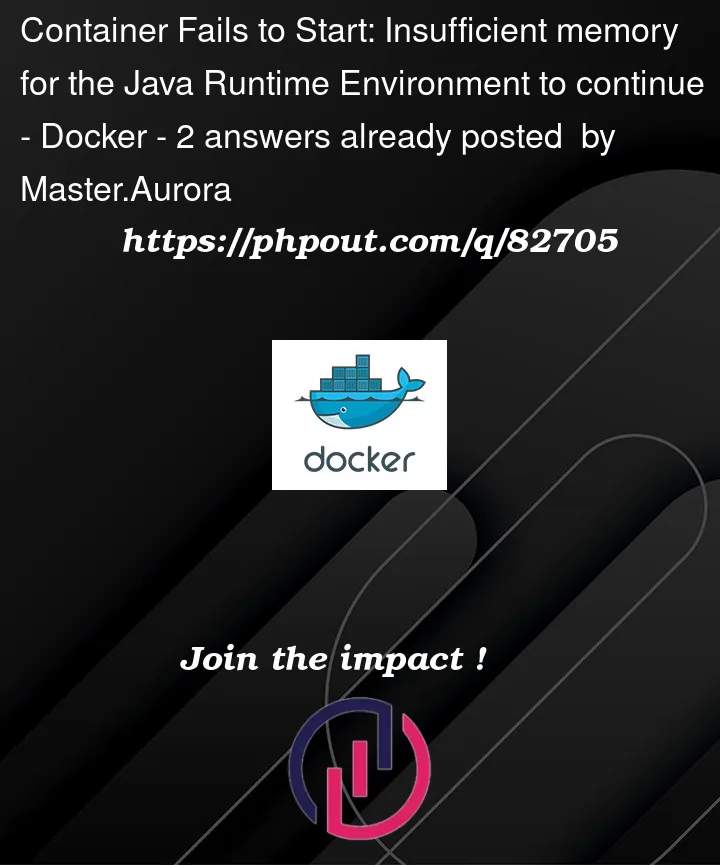We have an enterprise application running on Java 8. The deployment environment is built & updated through Bitbucket pipelines. I have a graphic showing the high-level architecture of the environment. We have two app servers running identical configurations apart from some application specific environment variables.
It was all working well until a week ago when after a successful pipeline run, the 2 app instances on one of the servers stopped working with the following error:
There is insufficient memory for the Java Runtime Environment to continue.
Cannot create GC thread. Out of system resources.
Both the instances are working fine on the other server. In contrast, the containers fail to start on this server.
Solutions Tried
The error accompanies the following information:
Possible reasons:
The system is out of physical RAM or swap space
The process is running with CompressedOops enabled, and the Java Heap may be blocking the growth of the native heap.
Possible solutions:
- Reduce memory load on the system
- Increase physical memory or swap space
- Check if swap backing store is full
- Decrease Java heap size (-Xmx/-Xms)
- Decrease number of Java threads
- Decrease Java thread stack sizes (-Xss)
- Set larger code cache with -XX:ReservedCodeCacheSize=
We have tried:
- Adding more swap memory. The server has 8GB of RAM while we have tried the swap from 4GB to 9GB.
- Played with the heap sizes Xms & Xmx from 128m to 4096m.
- Increased the RAM on this server to 16GB while the other server that works still does on 8GB.
Here is how the memory & swap consumption looks like:
free -mh
total used free shared buff/cache available
Mem: 15Gi 378Mi 12Gi 1.0Mi 2.9Gi 14Gi
Swap: 9Gi 0B 9Gi
I have links to several related artifacts. These include the complete docker logs output and the output of docker info on the failing server and the operational server.
This is what docker ps -a gets us:
:~$ docker ps -a
CONTAINER ID IMAGE COMMAND CREATED STATUS PORTS NAMES
d29747bf2ad3 :a7608a838625ae945bd0a06fea9451f8bf11ebe4 "catalina.sh run" 10 hours ago Exited (1) 10 hours ago jbbatch
0951b6eb5d42 :a7608a838625ae945bd0a06fea9451f8bf11ebe4 "catalina.sh run" 10 hours ago Exited (1) 10 hours ago jbapp
We are out of ideas right now as we have tried almost all the solutions on stack overflow. What are we missing?




2
Answers
I see that your Docker image uses Ubuntu 22.04 LTS as its base. Recently base Java images were rebuilt on top of this LTS version, which caused a lot of issues on older Docker runtimes. Most likely this is what you’re experiencing. It has nothing to do with memory, but rather with Docker incompatibility with a newer Linux version used as a base image.
Your operational server has Docker server version 20.10.10, while the failing server has version 20.10.09. The incompatibility issue was fixed exactly in Docker 20.10.10. Some more technical details on the incompatibility issue are available here.
The solution would be to upgrade the failing server to at least Docker 20.10.10.
I had had the same error.
Output of
was:
The issue was resolved by putting
in the docker-compose.yml for the service and removing and recreating the container
Maybe the same result could be achieved having /etc/docker/seccomp.jsonn tweaked – I tried and failed.